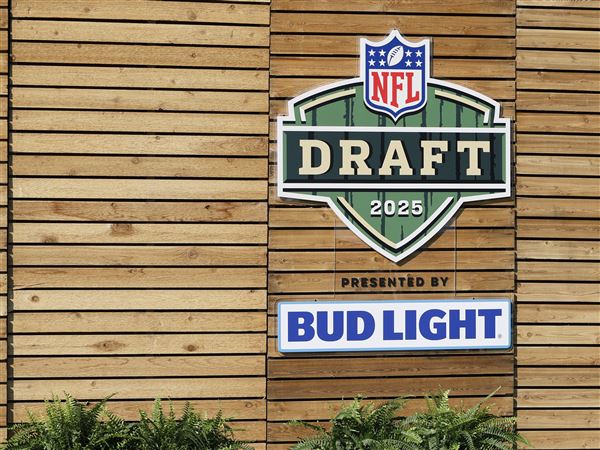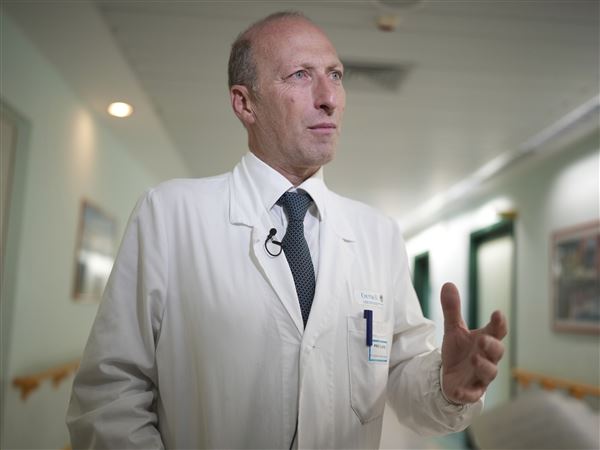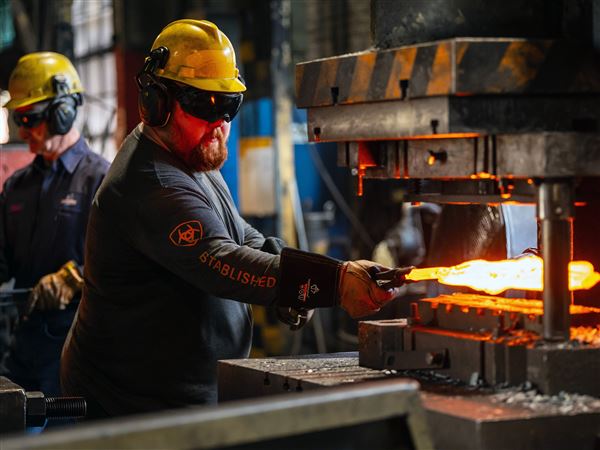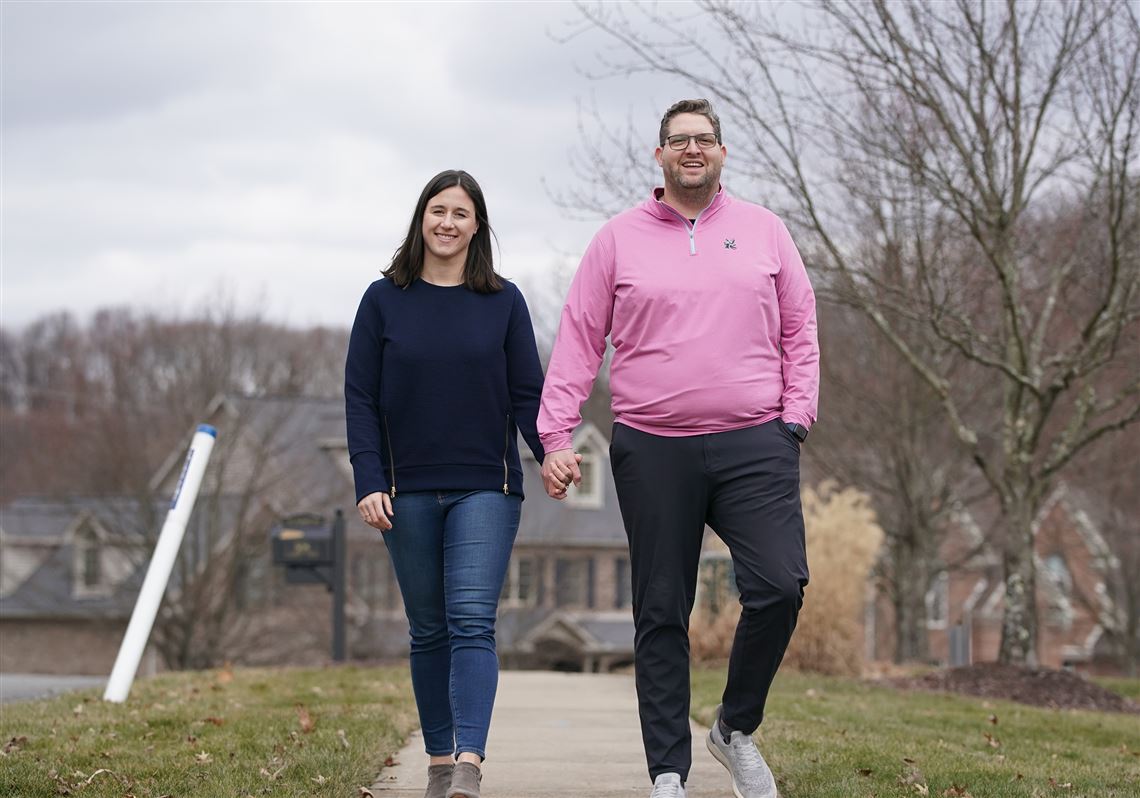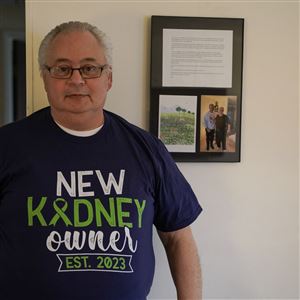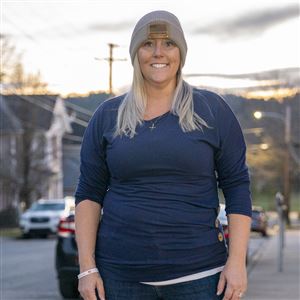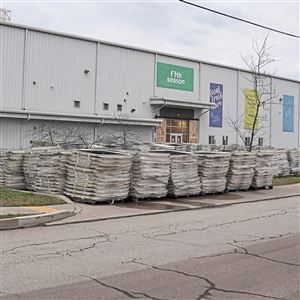In November 2020, Byron and Melissa Wade met and began dating.
Byron was open about the fact that, six months before, he had been officially diagnosed with a kidney disease called IgA nephropathy. “He shared it and he was very upbeat and straightforward,” said Melissa. “He said, ‘I have this. We don’t know what it means, but my sister has had it for decades and she has two healthy kids.’”
Melissa saw Byron taking handfuls of fish oil supplements daily but, otherwise, his kidney condition wasn’t on her mind — particularly as Pittsburgh entered its worst wave of the COVID-19 pandemic. The two continued dating and, in October of 2021, Byron invited Melissa to his father’s 70th birthday festivities in Hilton Head, S.C. When they got there, he noticed blood in his urine and eventually went to the emergency room.
“It was an acute kidney injury and his kidney numbers never rebounded,” said Melissa. “His numbers just got progressively worse.”
IgA nephropathy is an autoimmune disease in which clumps of antibodies deposit themselves in the kidneys, causing inflammation and damage. Some people live with it with minimal problems, but in others it can cause kidney failure.
Byron still felt pretty good — he and Melissa had run the Pittsburgh half marathon in the spring of 2021, and continued to ski and travel frequently — but after six months of steroid treatment, his kidney numbers weren’t improving.
A self-described “planner,” Byron knew a transplant would be a possibility at some point and scheduled an intake appointment with the UPMC transplant team. At the appointment in April 2022, the transplant team emphasized the advantages of living kidney donors over deceased donors. In Pennsylvania, the wait-list for a deceased kidney donor is about five years.
At that point, however, Byron was too healthy for a transplant. Doctors look at the glomerular filtration rate — a measure of how well the kidneys are working. Anything below 60 is a sign of kidney disease, and patients are eligible to be placed on the transplant list with a GFR of 20 or below.
Byron’s GFR at the time was 21.
“They said, ‘We appreciate you coming in and we’ll see you in a few years,’” he said. “At that point in time, I would lay in bed at night and start preparing a list: Who do we reach out to that could be a possible kidney donor?”
His parents offered but, due to their age, they were not ideal candidates.
And then one night, Melissa told him she’d like to be his donor. The two weren’t engaged at that point, but had been looking at rings and talking about a future together. Meanwhile, Byron’s condition had continued to worsen: In May of 2022, he became officially eligible for a transplant.
“People ask me, why did I do this?” said Melissa. “It just never occurred to me not to. I promised to build a life with him and spend the rest of my life with him. If this is how we do that, it’s not even a question.”
While Melissa was sure, others in her life were skeptical of the risk she would put herself in to give an organ to a boyfriend.
“When I told my mom, that was a hard conversation,” Melissa said. “She was a mom, very concerned and nervous.”
“She had a very real feeling that a lot of people have,” added Byron. “There’s risk here. The worst-case scenario is that I survive and something happens to Melissa.”
To prevent such a scenario, Melissa was put through months of extensive testing to make sure she was healthy.
“For Melissa, when we talk about live donation, one of the pillars of our institution and our program is the safety of the donor,” said Amit Tevar, director of kidney and pancreas transplant program at the Starzl Transplantation Institute at UPMC . “They need to be able to not only have a safe operation but also do well for the rest of their lives with one kidney.”
Melissa’s tests went smoothly, as did their compatibility: Byron, with blood type AB positive, is a universal recipient and Melissa, with O negative, is a universal donor.
On a trip down to Florida in July 2022, they got engaged. Five days later, as they were getting in the car to drive to Ohio to tell their parents about the engagement, Melissa got a call that she’d been approved as a donor.
They planned a wedding for May 2023, opting for a small, 30-person affair at venues that seemed flexible, in the event that the transplant would interfere. “I’m negotiating contracts with vendors, repurposing COVID language to ‘if we have a kidney transplant,’” said Melissa, an attorney.
In February, Byron went on an annual ski trip, and his kidney numbers held strong. He continued working full-time as president of UPMC Locum Clinicians.
But after a blood draw in March, his phone rang that afternoon with Tevar on the line. His GFR had plummeted to 13, meaning he was officially in kidney failure. He wouldn’t last the seven weeks until the wedding without either a transplant or dialysis. And Tevar had an opening for a transplant the next day.
Melissa, senior director of government relations for Aurora, was on a work trip in Washington, D.C., in line to board a plane to Dallas, when Byron and the transplant social worker called her. “I’m trying to figure out, ‘Do I have to get out of line? What are you telling me?’ she said. “Logistically, we couldn’t go in the next morning.”
They pushed the transplant back a few days, giving Melissa and their parents time to get to Pittsburgh.
The day of the transplant, they were able to reunite after the surgery, holding hands in the recovery room. Even the next day, Byron was feeling well enough to walk to Melissa’s hospital room, both in their hospital gowns. As they recovered at UPMC Montefiore, they would go on “walks” together, taking laps around the transplant unit.
Within a week, they were both back home and were able to get married on schedule in May — though one of their invitees to the rehearsal dinner, Tevar, was unable to come because he was in surgery.
The Wades are now working to encourage living donations — Byron is working with the National Kidney Foundation and the IgA Nephropathy Foundation, and they are both living donor advocates for the state of Pennsylvania.
Tevar credits Byron’s meticulous planning for the fact that he was able to avoid dialysis, even when his kidney function started to plummet. While dialysis is essential for those who need it, it also can cause complications such as heart attacks and strokes, he said.
“That’s what we want to happen more in Pittsburgh — to start the living donor process early so that people never have to go on dialysis,” he said. “It’s a wonderful story. We hope to see it replicated many more times.”
Anya Sostek: asostek@post-gazette.com
First Published: February 23, 2024, 3:26 p.m.
Updated: February 24, 2024, 8:12 p.m.
